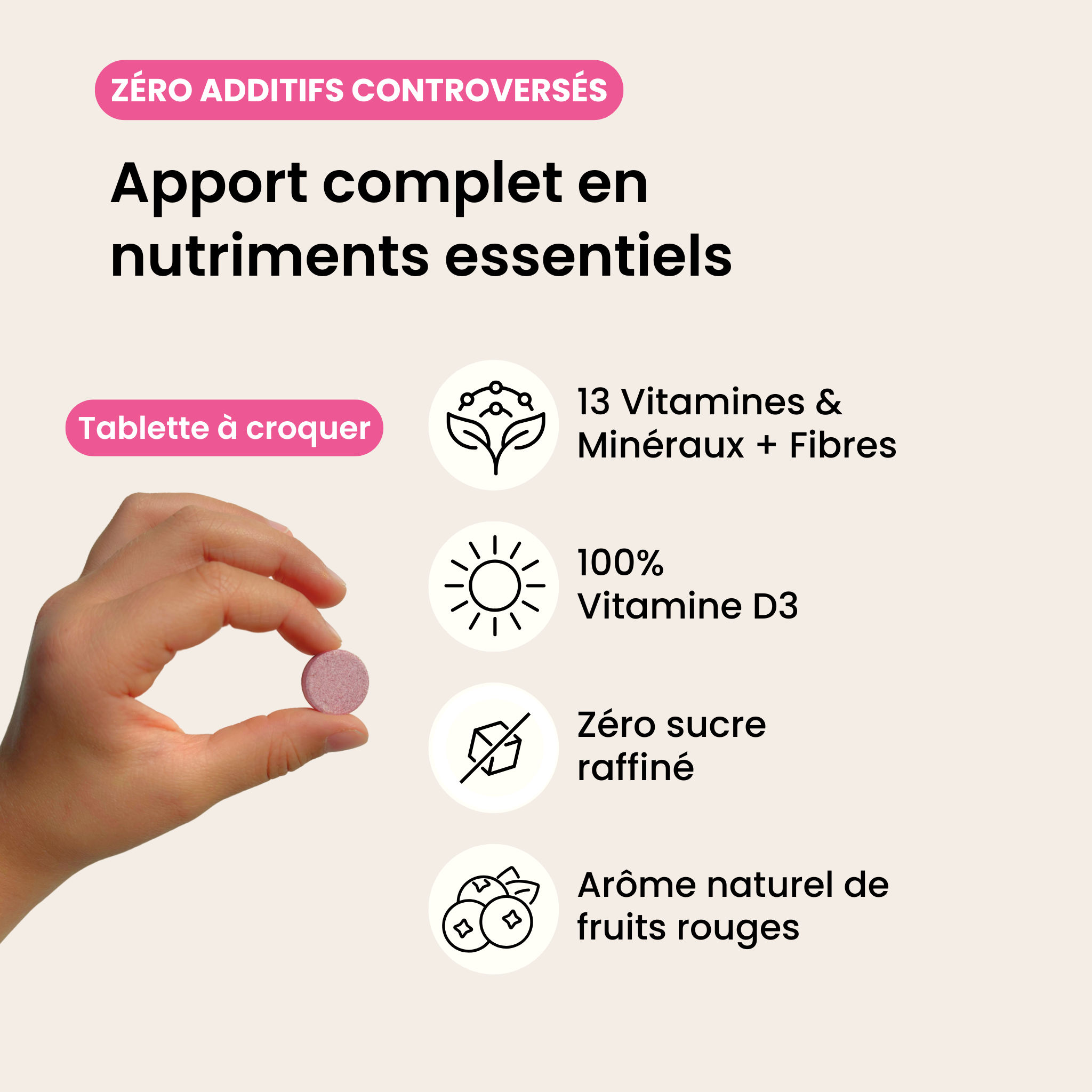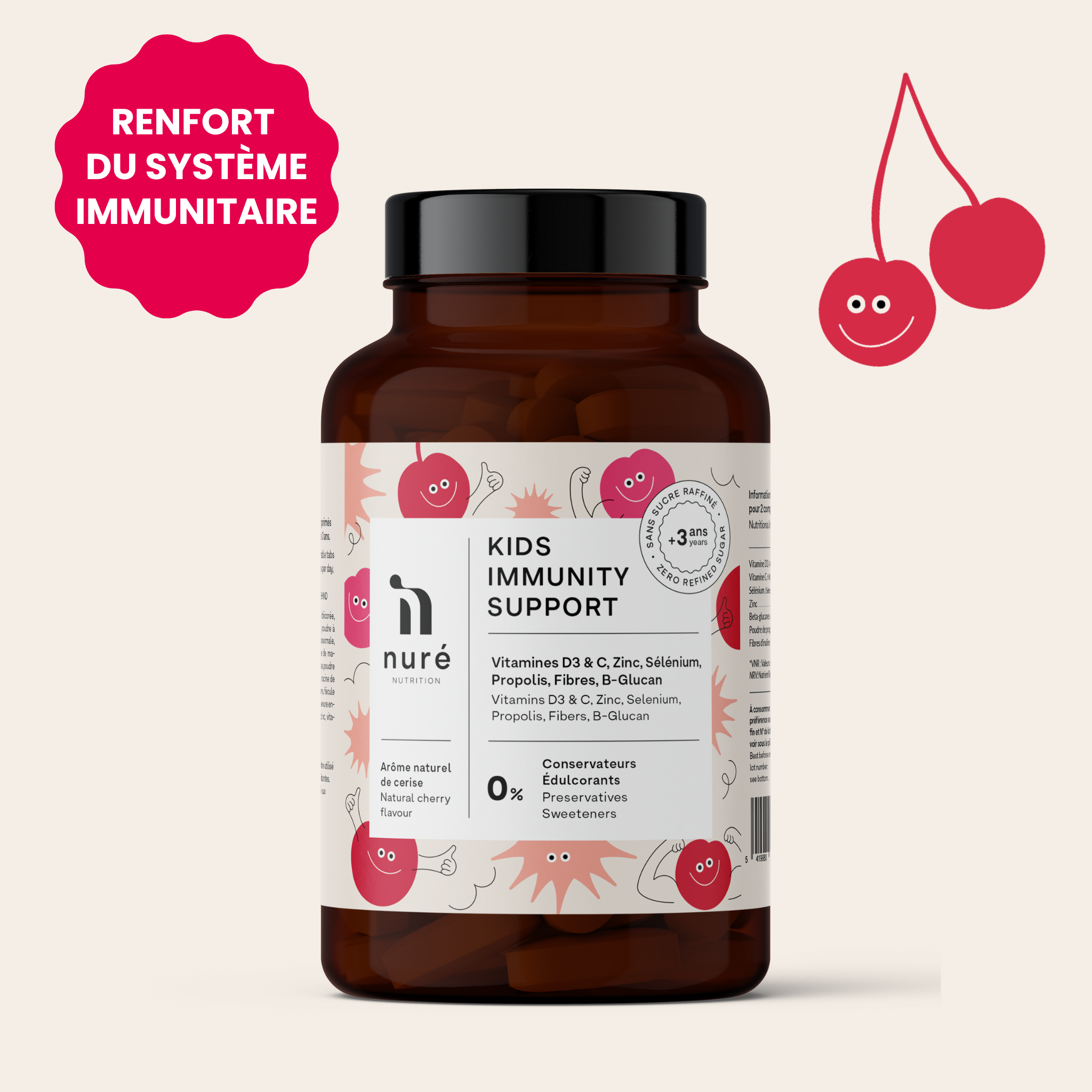Adopting a balanced diet from a young age is essential for supporting growth, cognitive and emotional development, strengthening immunity, improving sleep quality, and establishing healthy habits that will last a lifetime. Here are some tips that I hope will be helpful for the whole family!
1. Water: the best mealtime ally
Encourage your children to drink water with meals. Unlike juices or sugary drinks, water hydrates without adding unnecessary sugar or calories. It doesn’t affect blood sugar and promotes good digestion. It's important to drink water throughout the day, not just at mealtime.
2. A balanced and colorful plate with vegetables
Fill half the plate with a variety of vegetables at each meal. Vegetables, rich in fiber, vitamins, and minerals, support digestive health and strengthen the immune system. Varying colors provide a range of nutrients: green vegetables are high in iron and fiber, orange ones in beta-carotene, and red vegetables in antioxidants.
3. Protein and fats at breakfast to start the day right
A breakfast containing protein (such as eggs, yogurt, or nuts) and healthy fats (like vegetable oils, avocado) helps stabilize energy levels and prevent cravings. This type of breakfast improves concentration and cognitive performance, helping kids stay focused at school.
4. Teaching chewing skills
Encourage children to take their time chewing. Digestion begins in the mouth with enzymes like amylase, which break down carbohydrates and aid nutrient absorption. Taking time to chew well also helps children savor flavors and reach a natural feeling of fullness.
5. Raw fruits and vegetables as healthy snacks
To deal with hunger between meals, opt for raw fruits and vegetables. Low in calories yet rich in fiber, vitamins, and minerals, they help satisfy small hunger pangs without excess. For example, carrots, cucumber slices, or an apple make excellent choices.
6. Daily goal: five fruits and vegetables, or more!
Set a goal of at least five servings of fruits and vegetables per day, ideally seven to eight. This habit is essential for fiber, vitamins (A, C, E), and minerals (potassium, magnesium). A high intake of fruits and vegetables is associated with reduced risks of chronic diseases like type 2 diabetes and obesity.
7. Choose high-quality oils
Use vegetable oils rich in essential fatty acids to add to meals. Camelina and flaxseed oils, rich in omega-3s, support brain development and help regulate inflammation. Olive oil, high in omega-9, is also excellent for cardiovascular health.
8. Add a handful of nuts daily
Nuts (walnuts, almonds, hazelnuts) are a source of healthy fats and protein. They also provide minerals like magnesium and calcium, which support bone health. A small handful a day helps meet nutritional needs without adding saturated fats.
9. Include fish twice a week
Incorporate fish into meals at least twice a week, choosing small, fatty fish like sardines or mackerel. They are rich in omega-3s, which support cognitive and visual health, and are less likely to accumulate pollutants than larger fish.
10. Avoid refined sugars for stable energy
Refined sugars in processed foods have a high glycemic index, causing blood sugar spikes followed by sudden drops. This can lead to fatigue, irritability, and cravings. By reducing their intake, you help children maintain more stable energy levels and support a healthy gut microbiome.
11. Prioritize homemade meals over ultra-processed foods
Ultra-processed foods often contain additives, preservatives, and low-quality ingredients. They are generally low in nutrients and high in sugar, saturated fats, and salt. Preparing homemade meals lets you control ingredient quality, ensuring a balanced intake of essential nutrients.
12. Limit processed meats and red meat
Red meats (beef, pork) and processed meats are high in saturated fats and can contribute to inflammation when consumed in excess. Limit intake to two servings per week to promote cardiovascular health and reduce exposure to additives found in processed meats.
13. A fresh fruit at snack time to boost fiber and vitamins
Including a whole, fresh fruit at each snack time is a simple habit to add fiber, vitamins, and minerals to your kids' daily diets. Whole fruits (rather than juices) enhance fullness and provide essential fiber for digestion.
By adopting these principles, you will help establish a strong foundation for your child's health. These simple practices not only support harmonious growth but also build habits that will last into adulthood.














